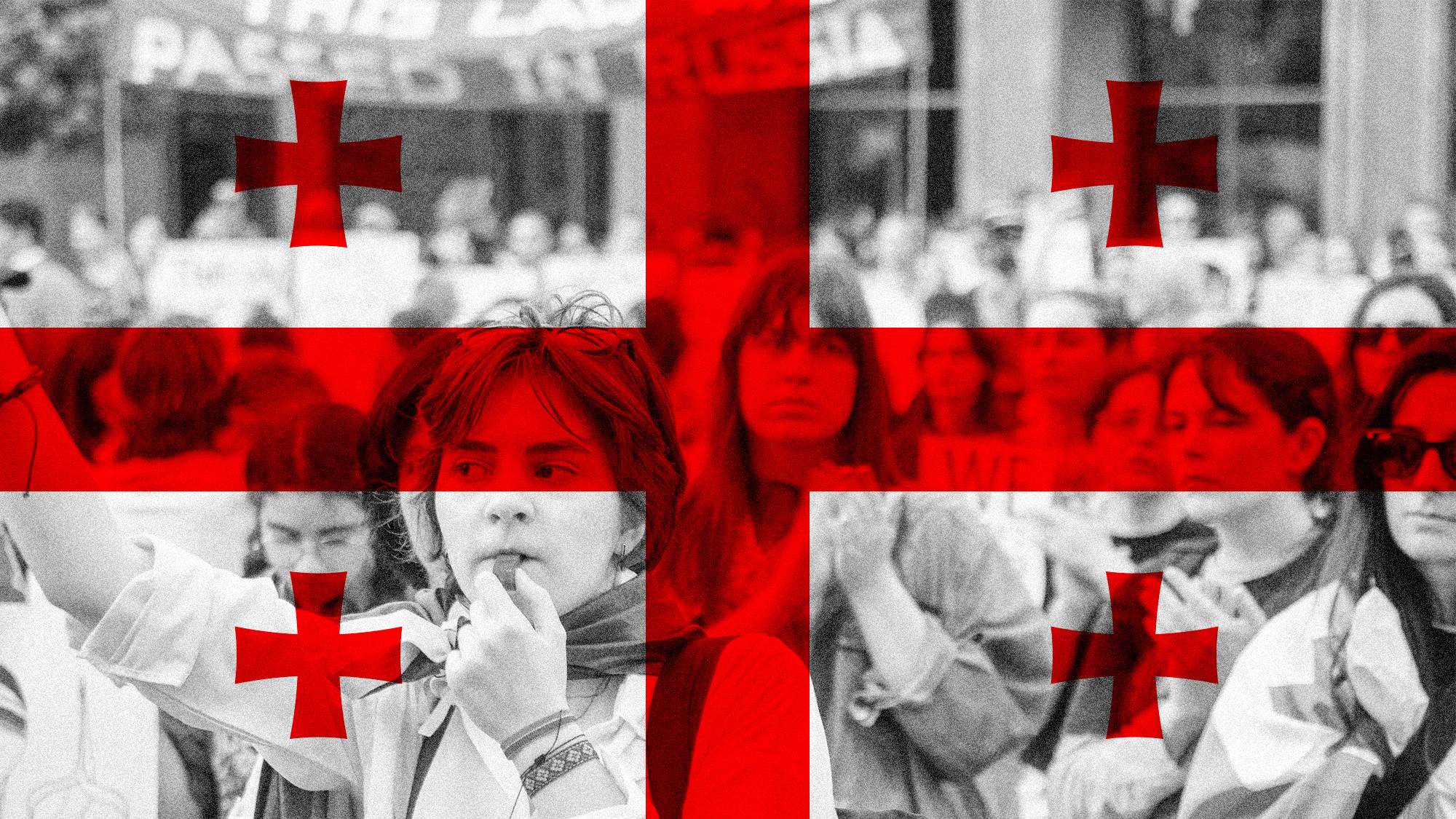Georgia's new foreign influence bill
Critics claim the 'Russian law' could stifle dissent and wreck the country's chances of joining the EU

A free daily email with the biggest news stories of the day – and the best features from TheWeek.com
You are now subscribed
Your newsletter sign-up was successful
Georgia faces another week of political turmoil as MPs and protesters continue to clash over a controversial "foreign influence" bill that threatens the country's bid to join the European Union, and which critics say is an attack on the media and civil society.
Thousands have taken to the streets after the government announced on 4 April it was reintroducing the bill to parliament, having abandoned it last year following mass protests. This culminated in Sunday's "March for Europe" where at least 20,000 people filled Tbilisi's central Republic Square, with more pro- and anti-government demonstrations due to take place in the coming days.
The law has "ignited a political crisis in the polarised South Caucasus country," reported Reuters, with Georgia "at a crossroads now", said Kornely Kakachia, head of the Georgian Institute of Politics think tank, and facing the choice "between authoritarianism and the potential to become part of Europe".
The Week
Escape your echo chamber. Get the facts behind the news, plus analysis from multiple perspectives.

Sign up for The Week's Free Newsletters
From our morning news briefing to a weekly Good News Newsletter, get the best of The Week delivered directly to your inbox.
From our morning news briefing to a weekly Good News Newsletter, get the best of The Week delivered directly to your inbox.
'The Russian law'
The draft Law on Transparency of Foreign Influence would require all organisations – ranging from media outlets to human rights groups to NGOs – that receive more than 20% of their funding from abroad to register as agents of foreign influence, with fines for those who do not obey.
The ruling Georgian Dream party has said the bill is modelled on the US Foreign Agents Registration Act and is needed to promote transparency and combat "pseudo-liberal values" imposed by foreigners.
Bidzina Ivanishvili, the influential billionaire founder of the ruling Georgian Dream party, accused a Western "global party of war" of meddling in Georgia in a rare speech at a rally in support of the bill on Monday. The former PM said that Georgia and Ukraine had been treated as "cannon fodder" by Western countries and that "the financing of NGOs, which presents itself as help for us, is in reality for strengthening (foreign) intelligence agencies, and for bringing them to power."
But critics, including Georgia's opposition and civil society groups, have dubbed the bill "the Russian law", comparing it to similar legislation that the Kremlin has used to suppress dissent and silence political opponents. In Russia, which ruled over Georgia until the collapse of the Soviet Union in 1991, hundreds of journalists, politicians and rights groups have been listed as "foreign agents", which "carries connotations of spying", said Reuters and "has been used to create a climate of suspicion around people and organisations that the authorities want to portray as subversive".
A free daily email with the biggest news stories of the day – and the best features from TheWeek.com
Georgia at a crossroads
Once seen as "leading the democratic transformation of ex-Soviet countries," Georgia has in "recent years been criticised for perceived democratic backsliding", said France 24.
This, though, is a "decisive moment", agreed The Times, and could "wreck the country's hopes of joining the European Union and bring it back under the Kremlin's control".
Officials in Brussels, which awarded EU candidate status to Georgia in December, have said that the draft law is "incompatible" with EU values, while Britain, the US and Germany have all criticised the decision to reintroduce it.
But despite Georgia's bid for EU and Nato membership being enshrined in the constitution and backed by more than 80% of the population, according to recent polls, Georgian Dream has a commanding majority and so can pass laws and vote down a presidential veto without needing the support of any opposition MPs. Parliament is expected to approve the second of three readings in the next few days.
The ruling party insists it remains staunchly pro-European and Moscow has denied having any role in the ongoing turmoil but the unrest has "echoes of the Maidan revolution in Kyiv in 2013 and 2014, which began when President Yanukovych withdrew at the last moment from a deal to move Ukraine closer to the EU after pressure from Moscow", said The Times.
"Massive protest rallies later toppled Yanukovych and President Putin deployed troops to Crimea and eastern Ukraine in a move that laid the ground for Russia's full-scale invasion in 2022," warned the paper.
Putin sees the Caucasus, like Ukraine, as part of a lost greater Russia, and could use the current unrest as a pretext to intervene. But the West also has an "important stake in whether Georgia returns to Moscow's orbit or throws off Russian influence" concluded Reuters, and, crucially, "whether that can be done without triggering further conflict".
Elliott Goat is a freelance writer at The Week Digital. A winner of The Independent's Wyn Harness Award, he has been a journalist for over a decade with a focus on human rights, disinformation and elections. He is co-founder and director of Brussels-based investigative NGO Unhack Democracy, which works to support electoral integrity across Europe. A Winston Churchill Memorial Trust Fellow focusing on unions and the Future of Work, Elliott is a founding member of the RSA's Good Work Guild and a contributor to the International State Crime Initiative, an interdisciplinary forum for research, reportage and training on state violence and corruption.